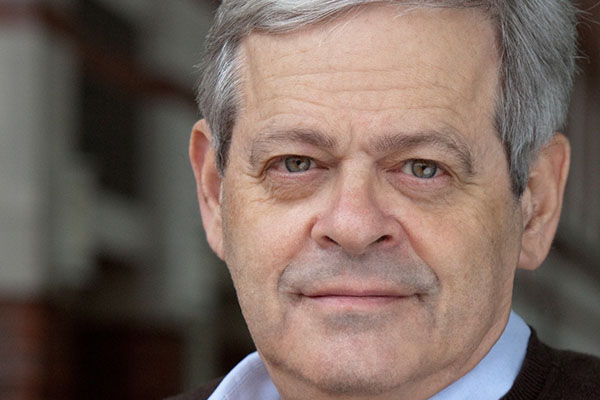Few men of letters boast the range of Dan Okrent. He has edited Life magazine; served as the public editor of the New York Times; written many books, including Great Fortune (a finalist for the 2003 Pulitzer Prize in history) and Last Call (a major source for the 2011 Ken Burns series Prohibition)—and, in his spare time, invented Rotisserie League Baseball. (Truly; Google it.) So why not theatre too?
Editor in chief Elizabeth Fenner recently spoke with Okrent, 65, about the new comic revue he co-wrote, Old Jews Telling Jokes, which runs at the Royal George through February 16 (1641 N. Halsted; ticketmaster.com).
How did you get the idea for the show?
There’s a website called oldjewstellingjokes.com [which runs videos of, yes, old Jews telling jokes], and you have to be 60 years old to be on it. The day that I became 60, I got in touch and said, I want to be on your website. I told four jokes. And of course I think I told them very, very well. Much later, Peter [Gethers, a writer and publishing executive] called and said: Do you think we could turn this into a cabaret act? And get some old folks up on stage once a week? It was the classic one thing led to another. Pretty soon we were opening in a real off-Broadway house.
The play ran in New York for more than a year, closing last month. Why Chicago next?
One, there’s a sizable Jewish population—though we know from audience reaction that this show is not just for Jews. Also, there’s a genuinely engaged theatre population. [It’s a plus that] my entire family, other than my wife and children, lives in Chicago: my brother and sister, nieces and nephews.
You’ve got an impressive local cast, which includes Tim Kazurinsky of Second City and Saturday Night Live fame.
I confess that I was a little bit worried about casting, because there were some very specific things we needed to get. I knew Chicago had many terrific actors, but I really had no idea how many. I was thrilled at the quality that was there. [The five-person cast also includes Dara Cameron, Alex Goodrich, Renee Matthews, and Gene Weygandt.];
Do the actors improvise at all?
So much of the show isn’t just people standing there telling a joke; it’s sketches, it’s skits, it’s people interacting with each other. You have to have things scripted or people get thrown off.
How many of the jokes were written by you and your partner versus—
Stolen? [Laughs.] We wrote very few of them. We’re doing a piece of—I wouldn’t say archaeology—but we’re bringing back and enlivening and modernizing a longstanding tradition of jokes. There’s one joke in the show about a fart that’s directly from the [centuries-old] 1001 Arabian Nights—the joke, not the fart, thank god. The same setup, the same conclusion, different characters and circumstances.
What does this kind of joke telling tradition mean to you?
It’s a connection to my past, to my father and to his father. My father was born here but didn’t speak English until he was six years old; he spoke Yiddish. He ran away from much about the past, but he never ran away from jokes. We always have the jokes.
What’s your favorite joke in the show?
The one about the man whose penis is cut off. That kind of proves the point of the show: We use jokes to deal with the horrible things in life. That’s why we have jokes about bad sex and about growing old. The show gets funnier as it goes along because jokes about old age and illness and death are a lot funnier than jokes about being a child.
What’s next for you?
I’ve done a lot of different things in my career, but I’ve never done anything that made people happy. Sitting in the back of the theater, hearing people laugh for 80 minutes, is a wonderful, wonderful feeling. I’m getting kind of hooked on it.



